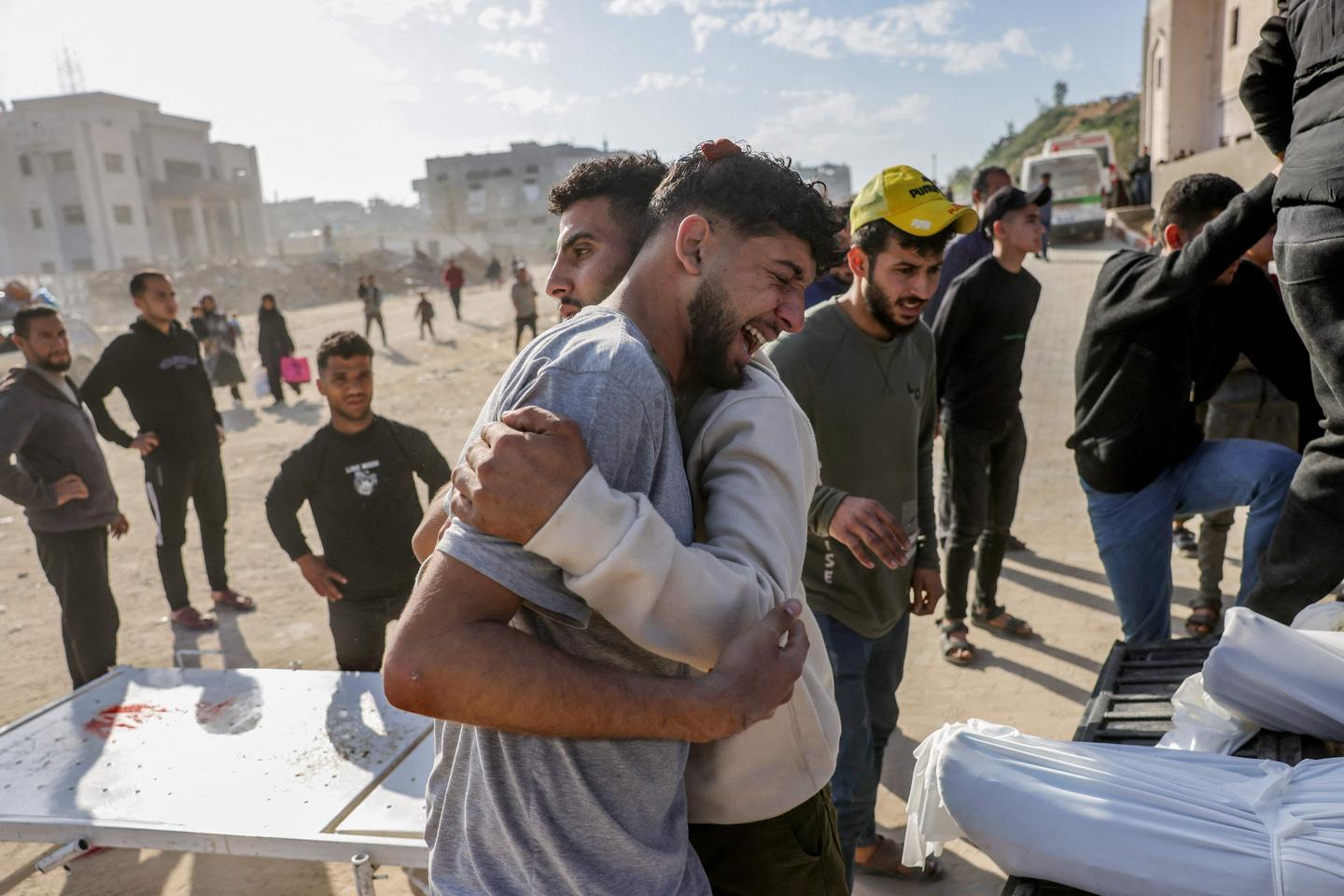Hundreds Dead in Renewed Gaza Violence: A Humanitarian Crisis Deepens
The escalating violence in Gaza has claimed hundreds of lives, plunging the region into a deepening humanitarian crisis. The renewed conflict, marked by intense airstrikes and rocket fire, has sparked international condemnation and raised serious concerns about the safety and well-being of civilians. This article provides an overview of the current situation, highlighting the key players, the devastating human cost, and the urgent need for international intervention.
A Devastating Toll: Civilian Casualties and Infrastructure Damage
The sheer number of casualties, including a significant number of women and children, is deeply alarming. Hospitals are overwhelmed, struggling to cope with the influx of wounded and the shortage of essential medical supplies. Reports suggest that critical infrastructure, including power grids, water facilities, and residential buildings, has been severely damaged, exacerbating the suffering of the already vulnerable population.
- Rising Death Toll: The exact number of casualties remains fluid, with reports constantly updating, but the death toll has already reached hundreds, with projections indicating a potentially much higher number.
- Widespread Destruction: Homes, schools, and hospitals have been directly targeted or caught in the crossfire, leaving thousands displaced and without shelter.
- Humanitarian Needs: The immediate needs are immense, encompassing food, water, medical care, shelter, and psychosocial support. International aid organizations are struggling to meet the scale of demand.
The Urgent Need for Humanitarian Aid
The situation in Gaza demands an immediate and significant humanitarian response. International organizations, such as the UN and the Red Cross, are appealing for urgent funding and access to deliver vital aid to those in need. The challenges of accessing the conflict zone, however, are considerable.
International Condemnation and Calls for a Ceasefire
The international community has widely condemned the renewed violence, calling for an immediate ceasefire and the protection of civilians. Many countries have issued statements urging restraint and expressing their deep concern over the deteriorating humanitarian situation.
- UN Security Council Meetings: Emergency meetings of the UN Security Council have been convened to address the crisis, but so far, concrete actions to halt the fighting have been limited.
- Diplomatic Efforts: Several countries are actively engaged in diplomatic efforts to broker a ceasefire, but progress remains slow amidst the ongoing conflict.
- International Pressure: There is mounting pressure on all involved parties to de-escalate the violence and prioritize the protection of civilian lives.
Understanding the Complexities: Roots of the Conflict
The current escalation is rooted in a long and complex history of conflict between Israel and Palestinian factions in Gaza. Understanding this historical context is crucial to understanding the current crisis. [Link to article on the history of the Israeli-Palestinian conflict]. The current situation highlights the urgent need for a lasting peace solution that addresses the underlying causes of the conflict.
Looking Ahead: The Path Towards Peace and Stability
The path towards lasting peace and stability in Gaza remains challenging. It requires a concerted effort from all parties involved, supported by the international community. A sustainable peace demands addressing the underlying political, economic, and humanitarian issues that fuel the conflict. This includes:
- Long-term investment in Gaza's infrastructure: Rebuilding critical infrastructure is essential for the long-term recovery and stability of the region.
- Addressing the humanitarian crisis: Continued international support for humanitarian aid is crucial to alleviate the immediate suffering and pave the way for a more stable future.
- Political dialogue and negotiations: A genuine commitment from all parties involved to engage in meaningful dialogue and negotiations is critical to achieve a lasting peace solution.
This tragic situation requires immediate action and sustained international attention. The urgent need for humanitarian aid and a lasting peace settlement cannot be overstated. We must collectively strive for a future where violence gives way to dialogue and cooperation, paving the way for a just and lasting peace in Gaza.
